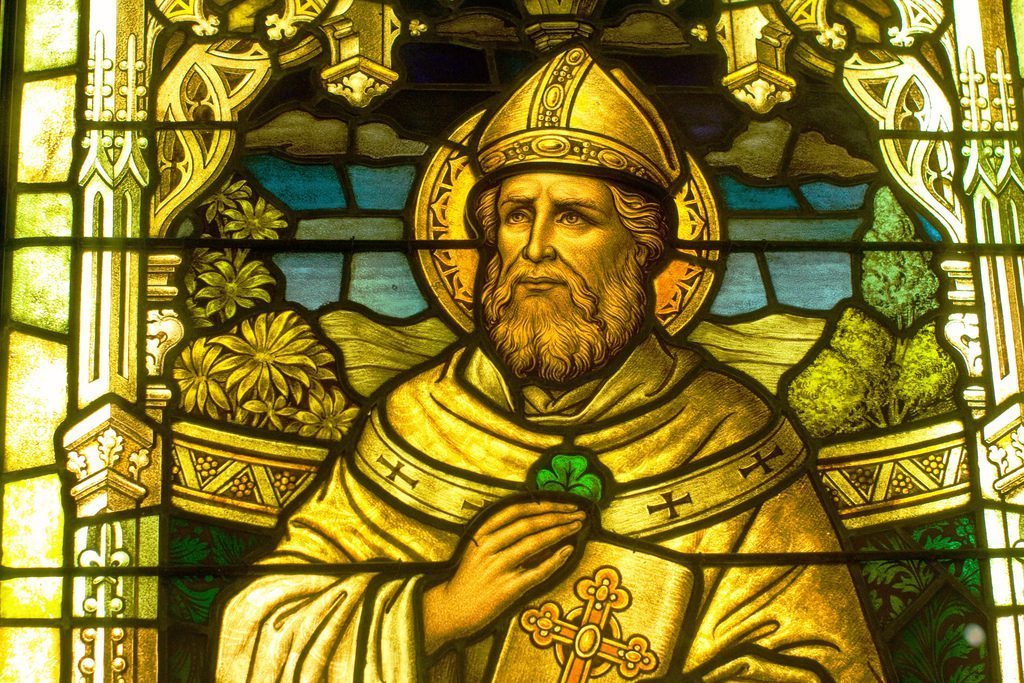What can libertarians learn from St. Patrick?
 Unlike seemingly a billion other Americans, I’ve no Irish ancestry to speak of and I’ve never been an Eirephile. In spite of my affinity for Guinness, I’ve always felt a little like a stranger during the usual St. Patrick’s Day festivities. That being said, St. Patrick himself has always been someone I’ve held in high esteem. Indeed, the Confirmation name I chose when I was confirmed in the Roman Catholic Church was Patrick.
Unlike seemingly a billion other Americans, I’ve no Irish ancestry to speak of and I’ve never been an Eirephile. In spite of my affinity for Guinness, I’ve always felt a little like a stranger during the usual St. Patrick’s Day festivities. That being said, St. Patrick himself has always been someone I’ve held in high esteem. Indeed, the Confirmation name I chose when I was confirmed in the Roman Catholic Church was Patrick.
I’m hesitant to call St. Patrick a hero of libertarianism (it was a different Patrick who said, “Give me liberty or give me death!”) but he was a man who knew the importance of liberty, and this shows through in the story of his life.
It may surprise some readers to hear that St. Patrick, the patron saint of Ireland, was neither born nor raised in Ireland. He was from somewhere in the Roman Empire’s territory of Britain, which never included Ireland.
St. Patrick came from a well-to-do Roman family and his mother was closely related to St. Martin of Tours, history’s first recorded conscientious objector. Despite the social standing of his family and the religious convictions of his relatives, there was little to no emphasis on religion or education during his childhood years, something he would later describe in his writings as one of the most embarrassing things to reveal to people. Like many other saints, St. Patrick was not religious in his youth.
His world was rocked when he was 16; he was kidnapped by pirates and sold into slavery in Ireland.
In pagan Ireland, St. Patrick began to devote himself to Christianity. After being enslaved for six years, he had a vision that a ship would take him away to freedom. He fled, ran 200 miles away, and persuaded some sailors to take him away from Ireland. After six years away, and a voyage that was anything but easygoing, he was reunited with his family in Britain.
Stop here and think about this: if you were enslaved and subsequently escaped enslavement, would you ever willingly return to that place? I imagine most people would say no. St. Patrick wasn’t most people.
After some years, he returned to Ireland, as a foreigner operating outside the law, working to convert the country to Christianity. During his time in Ireland, he was captured, beaten, robbed, put in chains, and put on trial. He spent much of his time among the Irish elite, constantly refusing their gifts, but happily providing the movers and shakers of Ireland with gifts of his own. He condemned slavers, appropriated pagan customs and imagery to make Christianity more palatable to the locals, ordained priests, and converted many, including well-regarded figures. By the time he died, the Irish were becoming known as a Christian people.
The point is, St. Patrick was a man who knew what it was to be deprived of freedom. He fought for his freedom, after he learned to not take it for granted. He was a foreigner in a strange land, at first against his will, and then by choice. In a move predating and characteristic of the fabled American dream, he went from slave to saint, rubbing elbows with kings and wealthy supporters along the way. Through peaceful means, he did what he was convinced was right and true. His love, his passion, and his devotion changed an entire country and the effects of his actions are felt even today, 1,500 years later.
No, he didn’t put forth arguments in favor of free trade. But he was someone who treasured his freedom and put it to its full use in an attempt to better the world. His story is one that shows the effect an individual can have, and the importance of not giving up on others, no matter how treacherous the road may be. Though I wouldn’t call him a libertarian, I think libertarians can learn a lesson from his life.
March 17 is said to be the day he died. Here’s to St. Patrick, a free man.
This piece solely expresses the opinion of the author and not necessarily the organization as a whole. Students For Liberty is committed to facilitating a broad dialogue for liberty, representing a variety of opinions. If you’re a student interested in presenting your perspective on this blog, visit our guest submissions page.
